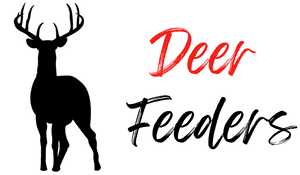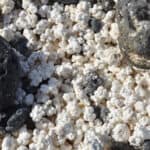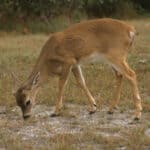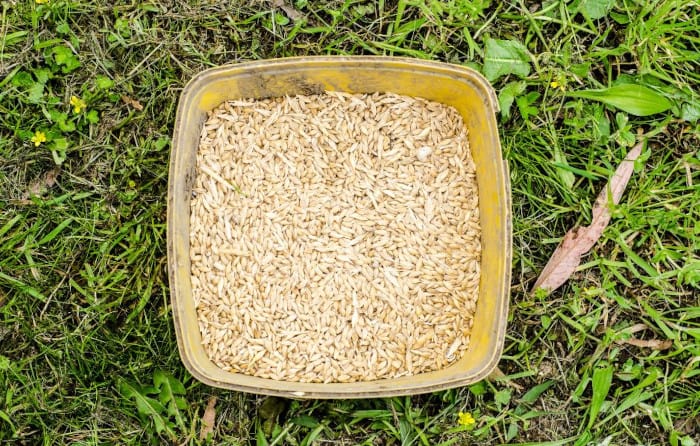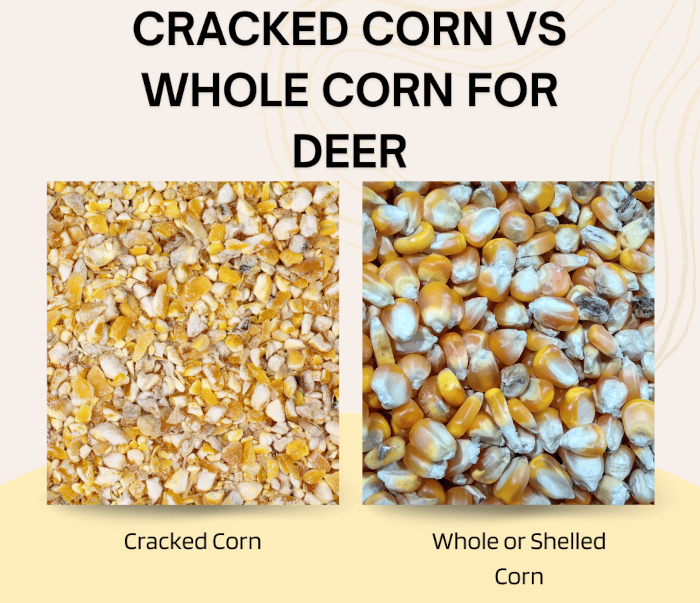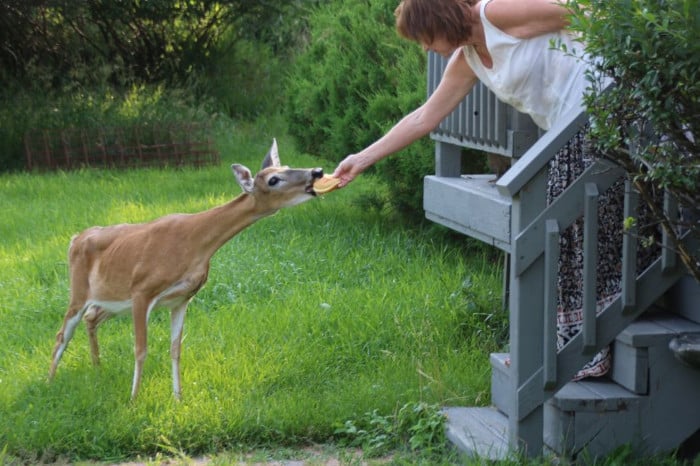Another question I see being asked on deer hunting forums is will deer eat horse feed? I can only assume that this question comes from horse owners who are concerned that the local wild deer population will consume any horse feed left out for horses.
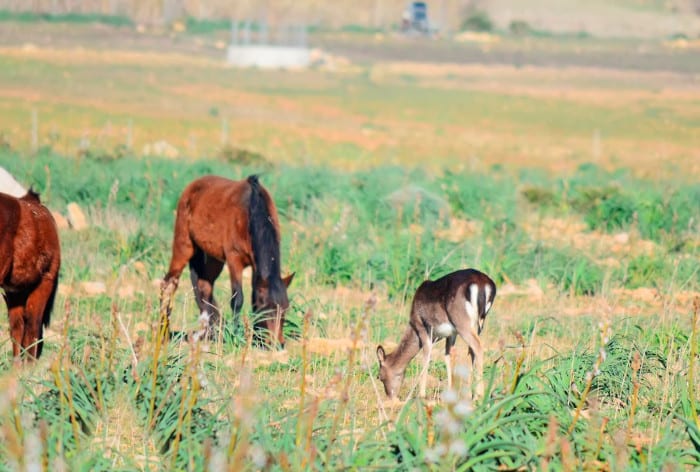
Those concerns are typically well founded as most white-tail deer will consume horse feed if they come across it. In some instances, I’ve heard of situations where deer hunters used horse feed for deer as a food source and attractant.
Important Takeaways
– Deer will consume horse feed, especially the horse sweet feed and grain-based feed mixes.
– Proper storage methods such as sealed containers or barns can prevent access to horse feed by wildlife.
– Fencing creates a physical barrier that deer can’t penetrate, preventing them from accessing horse feed.
– Scent deterrents like predator urine or commercial repellents can create a hostile environment for deer and discourage them from approaching horse feed areas.
Can Deer Eat Horse Feed?
Having worked on a horse farm as a teenager, I can definitively say that whitetail deer will eat horse feed if available. The owner of that horse farm was constantly trying to keep the local deer population out of the feed left out for the horses.
As I recall, he tried several potential solutions, including:
- Having bow hunters hunt around the farm during bow season to reduce the deer population.
- Moving the horse feeders higher off the ground so only the horses would have access.
- Spraying different types of scents and chemicals around the horse feeder stations.
None of the actions were all that effective, so he ended up moving all the feeders into the barn.
Deer are known for their diverse foraging patterns, which include browsing on leaves, twigs, and grasses. While their primary diet consists of plants, they are opportunistic eaters and might consume other food sources if available, including horse food.
Deer seem to really like the horse feed that is grain-based or sweet feed, but neither is a good food source for them because horses have different nutritional needs compared to deer. Horse feeds are specifically formulated to meet the dietary requirements of horses and may contain ingredients that are not suitable or beneficial for deer.
Most horse feeds, especially those that are grain-based, have an extremely high level of starchy carbohydrates, which can cause digestive issues, including acidosis and founder.
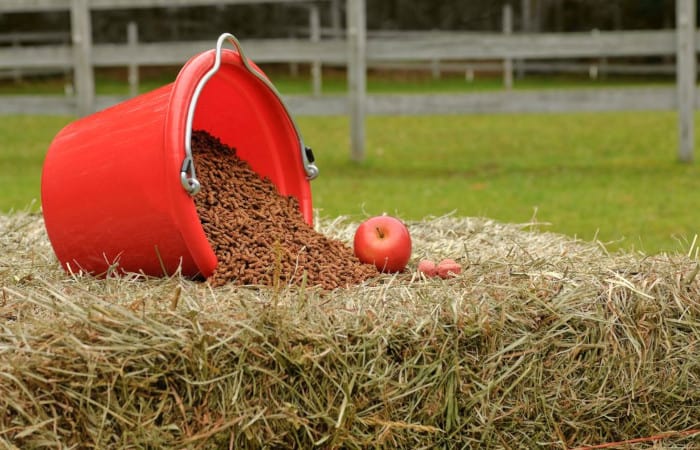
Acidosis
Acidosis is a common term for a condition called Rumen Acidosis, which can occur in any wild ruminant (such as deer or elk). Acidosis occurs when a ruminant consumes a large or significant amount of carbohydrates over a short period of time.
If the ruminant’s stomach can’t process the increase in carbs, acidosis can occur. The common symptoms are severe indigestion, dehydration, severe diarrhea, and coordination issues. Most deer with acidosis cannot walk, and the disease is often fatal.
Founder or Foundering
Founder or foundering is not all that common in whitetails, but can occur. With founder, the acidosis leads to abnormal hoof growth that can impede walking, which may lead to the deer’s death.
Strategies to Deter Deer from Horse Feed
Keeping deer out of horse feed can be challenging because whitetails are always looking for an easy meal.
Here are some of the more common approaches to deter deer from eating horse feed:
Fencing
Fencing can be an effective prevention method because it creates a physical barrier that they can’t penetrate. However, whitetails are excellent jumpers, so it’s important to ensure that the fence is at least 8 feet high and securely constructed to prevent them from jumping over or pushing through.
Scent Deterrents
Another strategy is the use of scent deterrents, such as predator urine or commercial repellents. These scents create a hostile environment for deer, making them less likely to approach the horse feed area.
If you opt to try predator scent, it’s important to ensure that the predator scent you select is a predator species that is native to your area. For example, if you have mountain lions in your area, then a mountain lion scent might be a decent deterrent. Other popular predator scents that can be effective include:
- Coyote urine
- Bobcat scent
- Wolf scent
- Bear Scent
Covered Feeding Bins
Another deterrent option involves implementing covered feeding bins so the deer have to physically push the bin open to access the feed. Most horses are more than strong enough to lift the bin door to access the feed.
By implementing these strategies for deer deterrence and exploring alternative feed options, horse owners can better protect their feed from being consumed by deer.
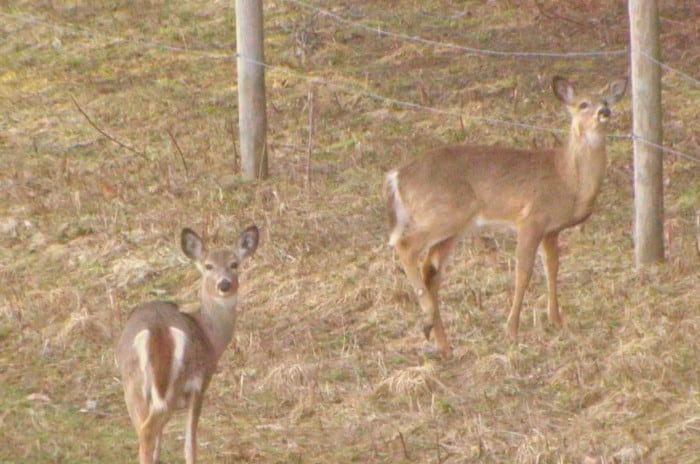
FAQS
Here are some commonly asked questions associated with whitetail deer eating horse feed:
Is horse sweet feed safe for deer?
Horse sweet feed is not really considered safe for deer. It is formulated specifically for horses and may contain ingredients that are not suitable for deer consumption. Additionally, deer have different dietary needs compared to horses, and a diet solely based on horse feed may not meet these requirements.
Can I feed deer with horse sweet feed?
Technically, it is possible to feed deer with horse sweet feed, but it is not recommended. Deer have specific dietary needs, especially during certain times of the year, such as antler growth. It is best to provide them with a diet that is specifically formulated for deer and their nutritional requirements.
Is horse feed suitable as a supplemental feed for deer?
No, horse feed is not suitable as a supplemental food source for deer. Deer-specific feed or supplements designed for whitetail deer offer a better option for supplemental feeding. Horse food can lead to some dietary issues in deer.
Can deer eat sheep feed?
This is another question I’ve seen asked, and it sort of goes hand in hand with questions about horse feed. Although deer can eat sheep feed, it’s not the most optimal diet for them. Sheep have different nutritional requirements compared to deer, so sheep feed may not provide the necessary nutrients for the health and well-being of deer.
Can I feed my deer horse grain with molasses?
Although deer may love horse grain with molasses, it’s not recommended to feed them this type of feed. Molasses is often added to horse grain to enhance palatability, but it may not provide the necessary nutrients for deer.
